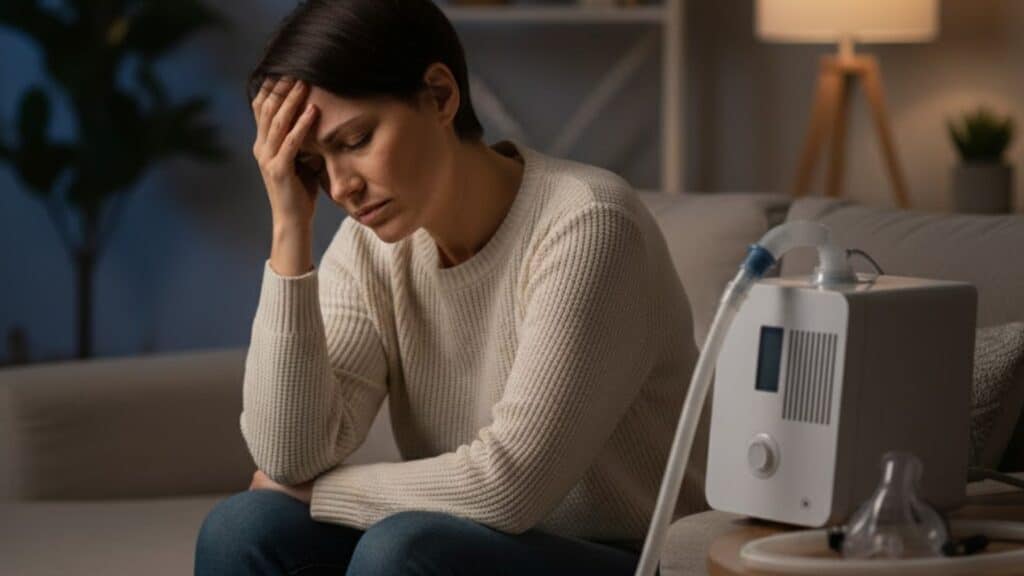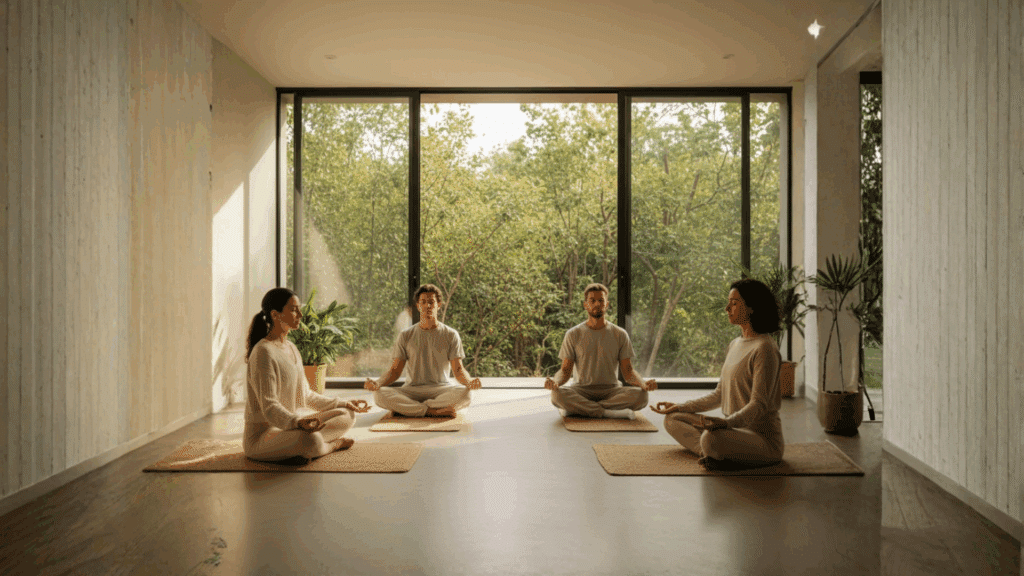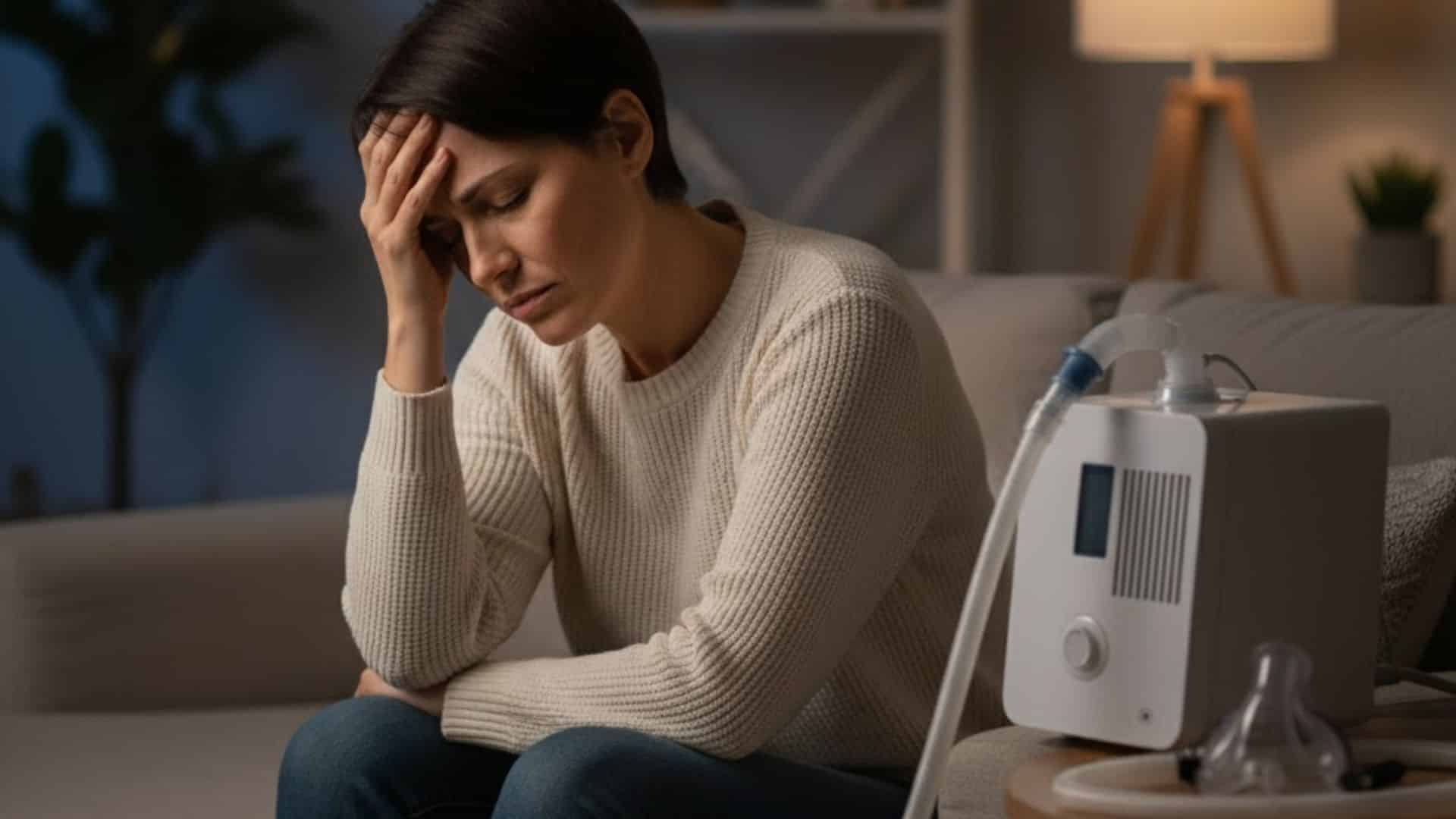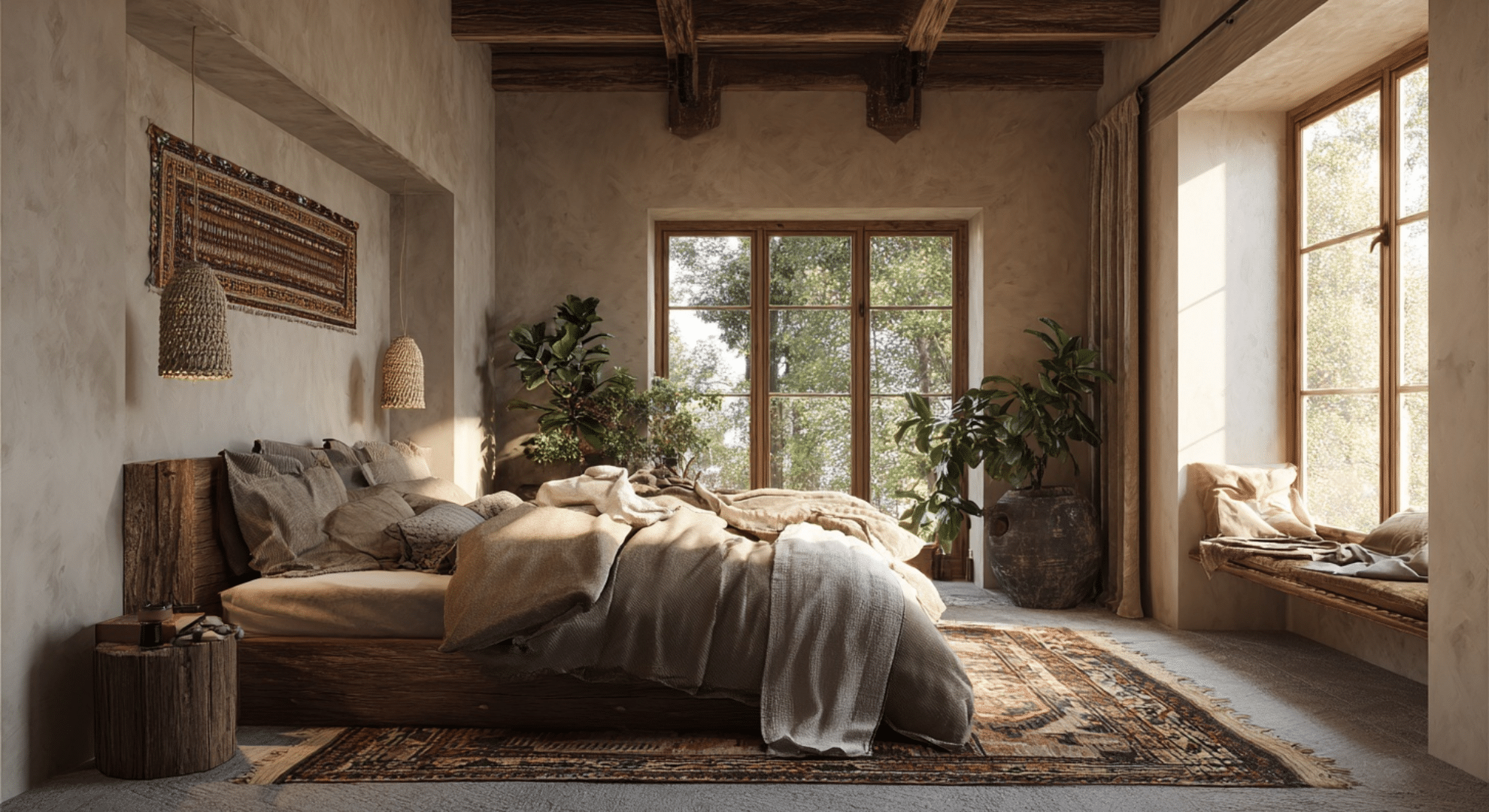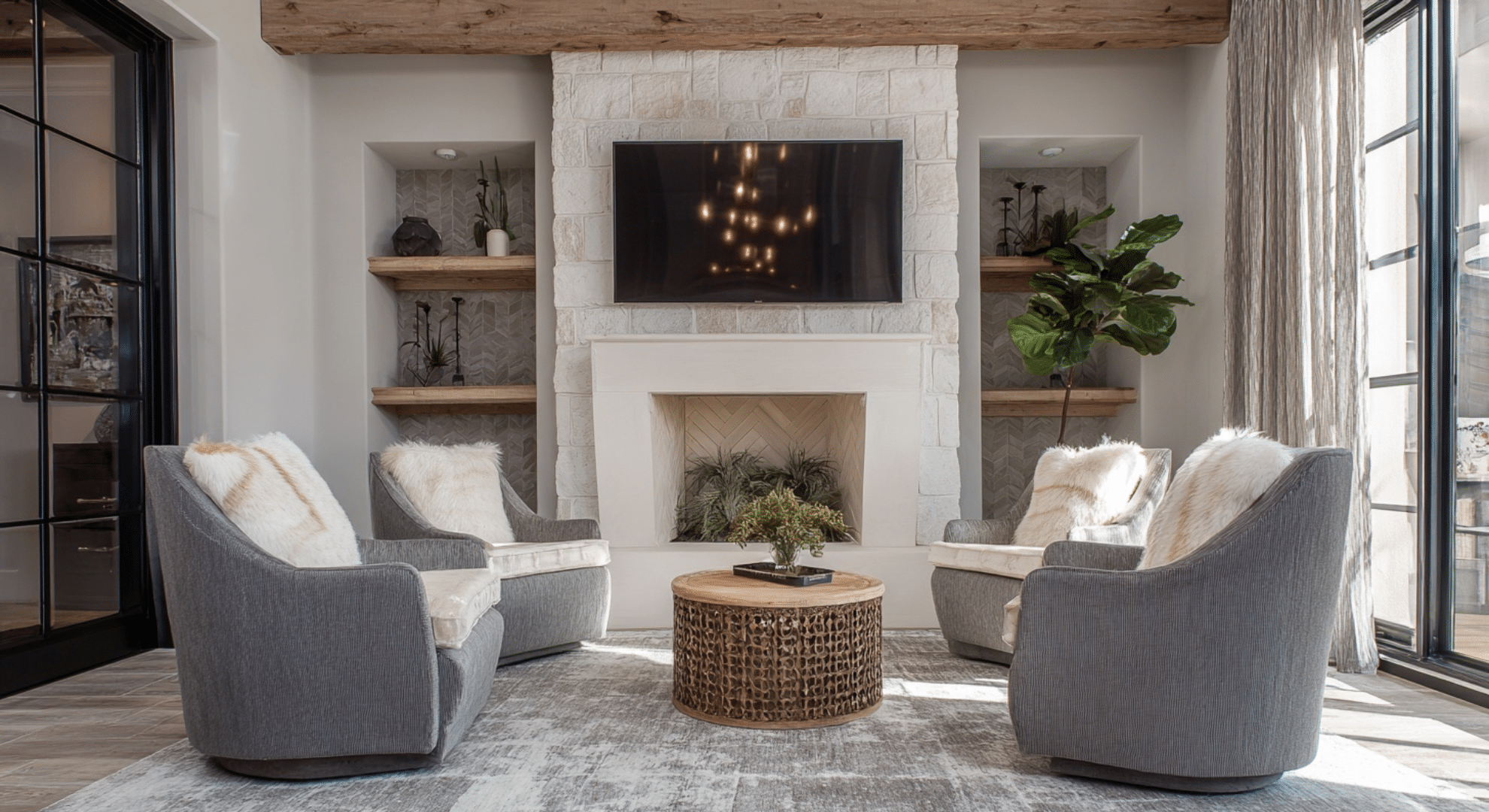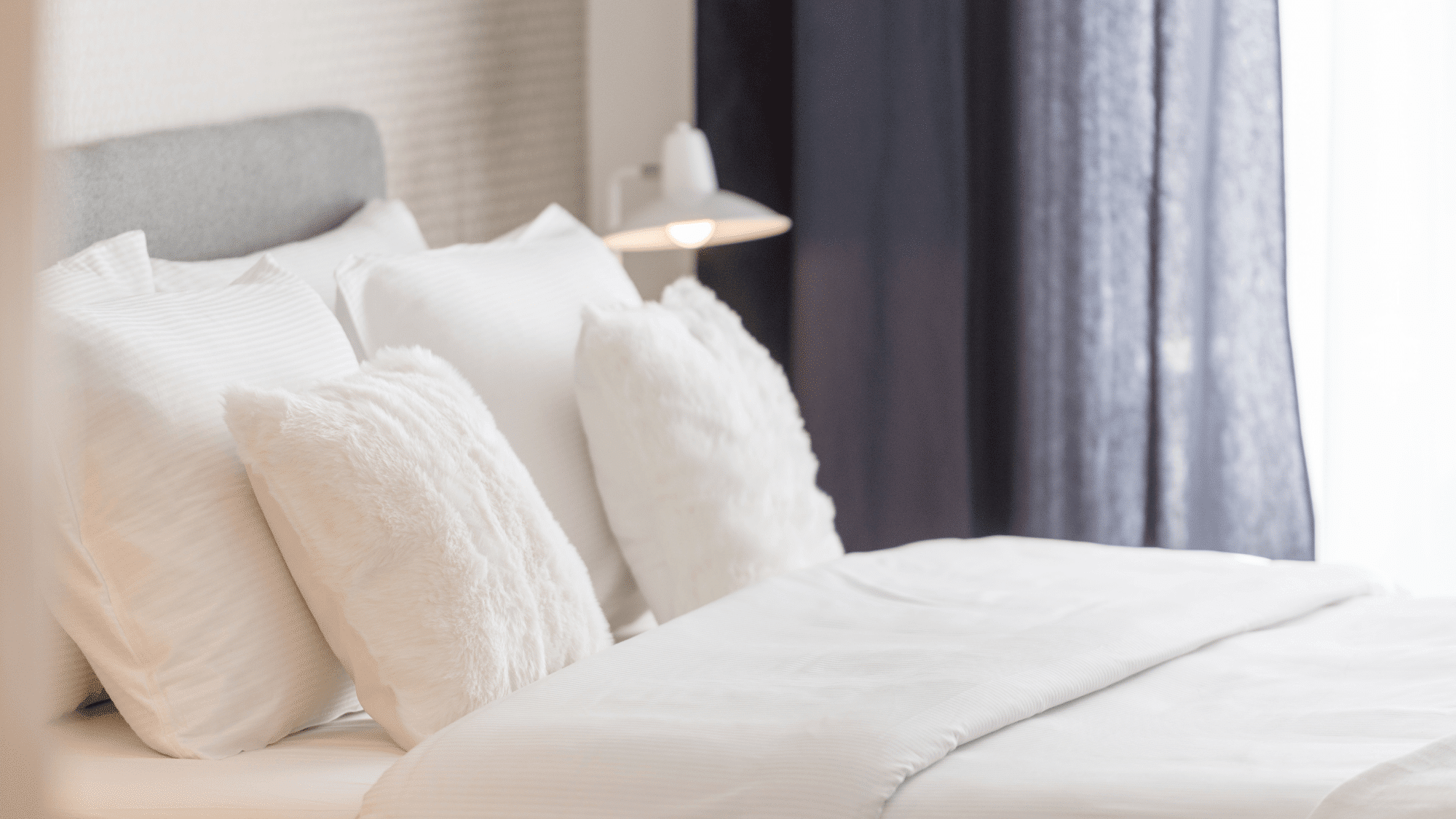Do you wake up feeling tired and anxious even after a full night of sleep? I’ve talked to many people who experience both sleep problems and constant worry together.
The question “can sleep apnea cause anxiety?” comes up often because these conditions affect each other deeply. Your breathing stops during sleep, which triggers stress responses that fuel anxious feelings all day.
Understanding this connection helps you take control of your health and feel better overall. I’m going to explain exactly how these conditions work together and what you can do about them.
You’ll learn why your sleep struggles might be causing those worried thoughts and racing heartbeat. Let’s find out the link between your nighttime breathing and daytime mental health.
What is Sleep Apnea?
Sleep apnea is a serious disorder where your breathing repeatedly stops and starts during sleep. The most common type is obstructive sleep apnea, which happens when throat muscles relax too much.
Central sleep apnea occurs when your brain doesn’t send proper signals to the breathing muscles. You might notice loud snoring, gasping for air at night, or waking up exhausted.
Many people feel extremely tired during the day and struggle to focus on tasks. Poor concentration and morning headaches are also common warning signs.
Several factors increase your risk, including being overweight or having a narrow airway. Age plays a role, too, as the condition becomes more common in older adults. Drinking alcohol or taking sedatives before bed can make symptoms worse.
What is Anxiety?
Anxiety is more than just feeling worried or stressed about everyday problems. Clinical anxiety includes disorders like generalized anxiety disorder, which causes constant worry about things.
Panic disorder creates sudden, intense episodes of fear that feel completely overwhelming. Common symptoms include racing thoughts, rapid heartbeat, sweating, and feeling restless or on edge.
Anxiety directly impacts your sleep by making it hard to fall asleep nightly. It affects your breathing patterns, often causing shallow or rapid breaths during stress. Your body stays in a heightened stress response mode, releasing hormones constantly.
When left untreated, anxiety interferes with your daily activities and makes tasks difficult. Your mood suffers, sleep quality drops, and overall life satisfaction decreases over time.
How Sleep Apnea and Anxiety are Linked?
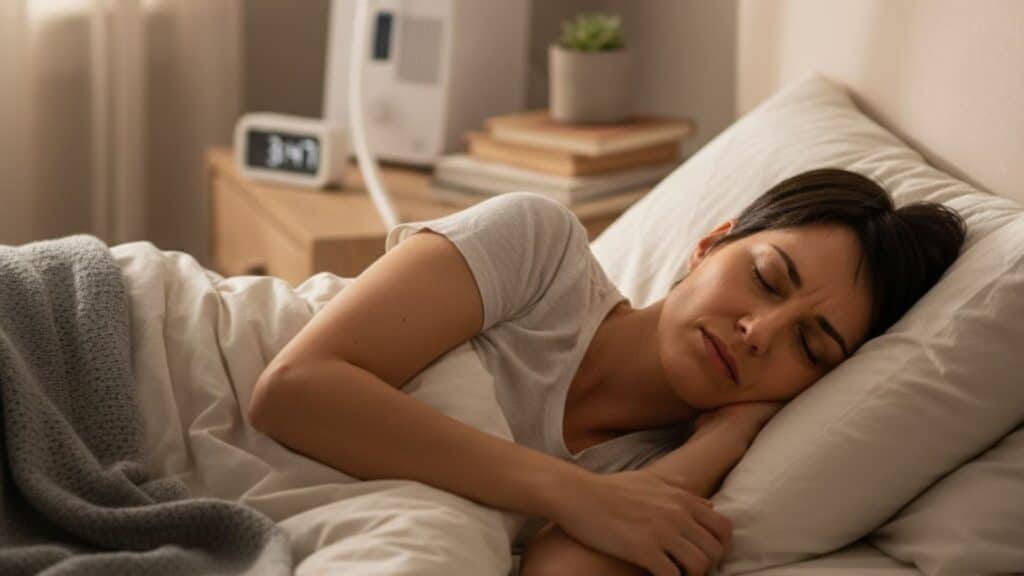
I’ve studied this topic extensively and found that sleep apnea and anxiety have a strong connection. Here’s how these two conditions interact with each other:
Can Sleep Apnea Cause Anxiety?
Sleep apnea causes your breathing to stop and start many times while sleeping. This stresses your brain and body, triggering a fight-or-flight response.
The drop in oxygen levels and broken sleep make you tired during the day and increase the risk of anxiety. Studies show that people with sleep apnea have higher rates of anxiety. These facts point to a clear link between sleep apnea and feeling anxious.
Can Anxiety Cause Sleep Apnea?
Anxiety itself does not cause sleep apnea, but it can make sleep worse. When you have anxiety, your brain stays alert and restless, making it hard to sleep well. This can cause insomnia or restless nights, which may worsen the severity of your sleep apnea.
The stress from anxiety can cause muscle tension that might block your airway more during sleep. So anxiety feeds into sleep problems, but is not the root cause of apnea.
The Two-Way Cycle: Sleep Apnea and Anxiety Feeding Each Other
Sleep apnea and anxiety often make each other worse. Poor sleep from apnea raises anxiety, which then makes sleep worse. This cycle lowers sleep quality and raises apnea severity. Both share risks like obesity and age.
A study of 178 patients by the National Center for Biotechnology Information (NCBI) found anxiety was common in sleep apnea sufferers regardless of gender, and worse apnea meant more anxiety.
This shows that these conditions often occur together and deeply affect each other.
Spotting Sleep Apnea and Anxiety Signs Together
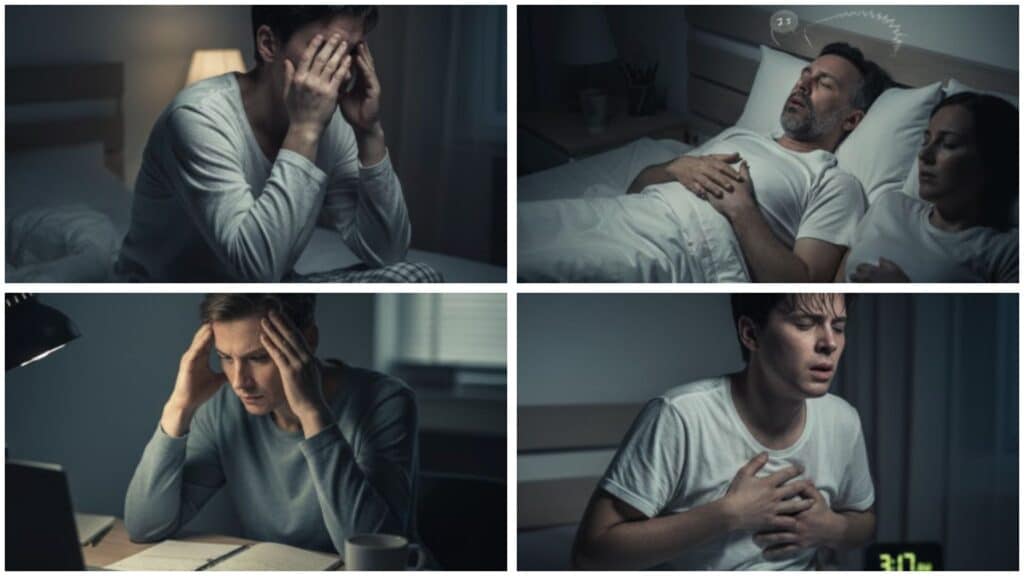
Recognizing when both conditions exist at the same time can be tricky, but important. Here are the key signs that sleep apnea and anxiety might both be affecting you:
- Constant daytime exhaustion combined with excessive worrying or racing thoughts that won’t go away.
- Loud snoring or gasping for air during sleep, along with panic attacks or sudden fear.
- Morning headaches and difficulty concentrating paired with restlessness or feeling on edge all day.
- Waking up frequently at night, feeling short of breath, while also experiencing heart palpitations or sweating.
If you notice several of these symptoms happening together regularly, it’s time to act. Talk to a doctor or sleep specialist who can properly evaluate both conditions.
Diagnosing and Evaluating Both Conditions
Getting properly diagnosed requires testing for both sleep apnea and anxiety at the same time. For sleep apnea, doctors use a sleep study called polysomnography that monitors your breathing overnight.
You might do this study in a lab or at home with portable equipment. For anxiety, doctors conduct clinical interviews and ask detailed questions about your symptoms and feelings.
They may give you questionnaires or psychological assessments to measure your anxiety levels accurately. I believe it’s crucial to evaluate both conditions together instead of treating them separately.
Many symptoms overlap, so testing for just one condition might miss the complete image. Your doctor needs all the information to create the best possible treatment plan.
Treatment Options for Sleep Apnea and Anxiety
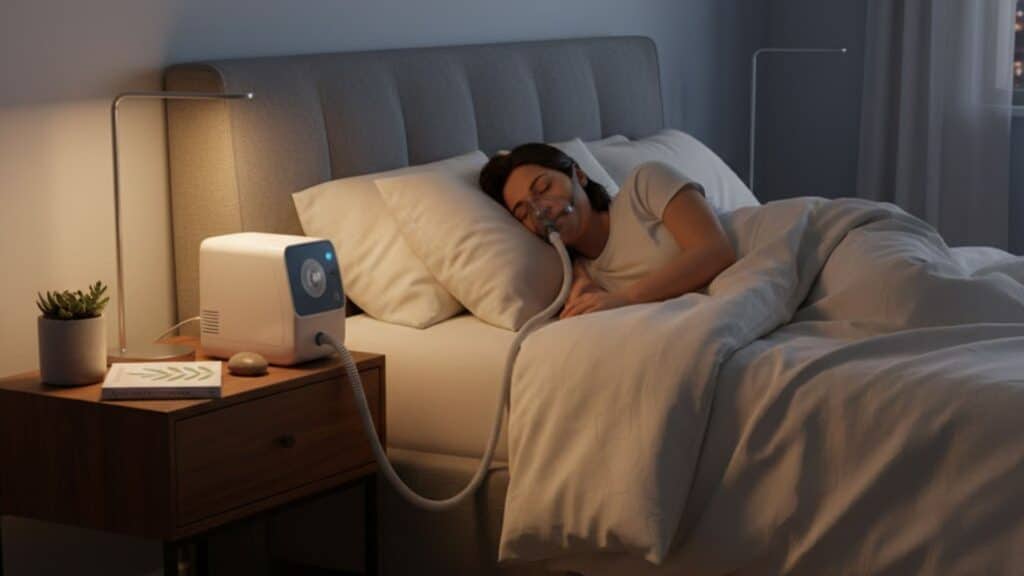
I’ve found that treating both sleep apnea and anxiety requires a comprehensive approach that addresses each condition. Here’s what works best for managing these interconnected problems:
1. Treating Sleep Apnea
Sleep apnea treatment focuses on keeping your airway open and improving breathing during sleep. Here are the most effective treatment options available:
- CPAP therapy uses a machine that delivers steady air pressure to keep your airway open all night.
- Oral appliances reposition your jaw and tongue to prevent airway blockage while you sleep comfortably.
- Surgical procedures can remove excess tissue or correct structural problems that block your airway during sleep.
Improving sleep quality through these treatments often reduces anxiety symptoms as a natural result. Better breathing at night means better mental health during the day for many people.
2. Addressing Anxiety
Anxiety treatment helps calm your mind and teaches you skills to manage worried thoughts effectively. Here are proven methods that make a real difference:
- Cognitive behavioral therapy helps you identify negative thought patterns and replace them with healthier ones.
- Deep breathing exercises and relaxation techniques calm your nervous system and reduce stress levels quickly.
- Prescription antidepressants or anti-anxiety drugs can balance brain chemistry and reduce anxiety’s impact on sleep.
Combining therapy with relaxation techniques gives you the best chance at managing anxiety successfully. Your doctor can determine if prescription treatment would help your specific situation and symptoms.
3. Integrative Treatment Approaches
Treating both conditions at the same time produces much better results than addressing them separately. Here’s why an integrated approach matters so much:
- Coordinated care between sleep specialists and mental health providers ensures nothing gets overlooked in treatment.
- Treating sleep apnea often improves anxiety, while managing anxiety makes sleep apnea treatments more effective overall.
- Regular follow-ups with your healthcare team help track progress and adjust treatments as needed quickly.
Working with providers who understand how these conditions affect each other is essential for success. Your physical and mental health are deeply connected and deserve comprehensive care together.
Practical Tips for Daily Management
Small daily habits can make a huge difference in managing both sleep apnea and anxiety effectively. Here are practical steps you can take starting today:
- Consistent sleep schedule: Stick to the same bedtime and wake-up time every single day, even on weekends.
- Breathing exercises: Practice diaphragmatic breathing or the 4-7-8 technique to calm your airway and reduce anxiety quickly.
- Track your symptoms: Use a journal or smartphone app to monitor sleep quality and anxiety patterns regularly.
- Open communication: Talk honestly with your healthcare providers about both conditions so they can adjust your treatment plan.
I make these habits part of my routine because they really help control symptoms over time. Simple changes add up and create better sleep and less anxiety naturally.
Wrapping It Up
Now you understand exactly how sleep apnea can cause anxiety and create a cycle of problems. Your breathing issues at night directly impact your mental health during waking hours every day.
I’ve seen how treating one condition often improves the other naturally and quickly for many people. Take action by talking to your doctor about testing for both conditions together right away.
Don’t ignore warning signs like constant exhaustion paired with worry or nighttime panic attacks happening regularly. Getting proper diagnosis and treatment will significantly change how you sleep and feel each day.
I encourage you to start paying attention to your symptoms and seek help soon. What symptoms have you noticed that might connect your sleep and anxiety? Share below.


